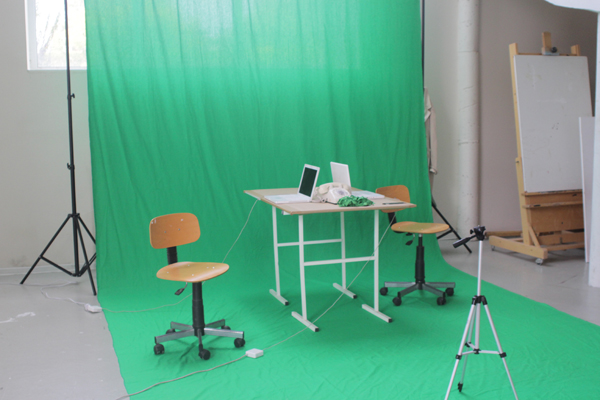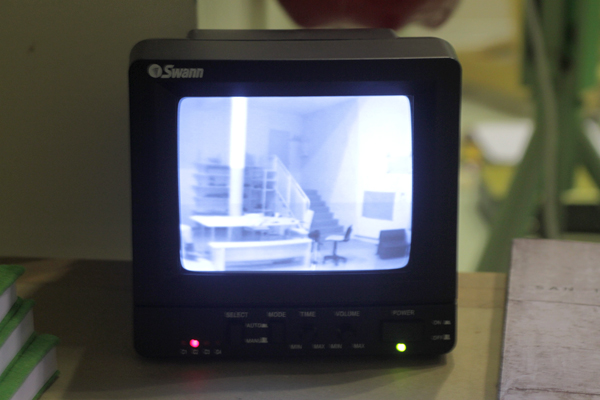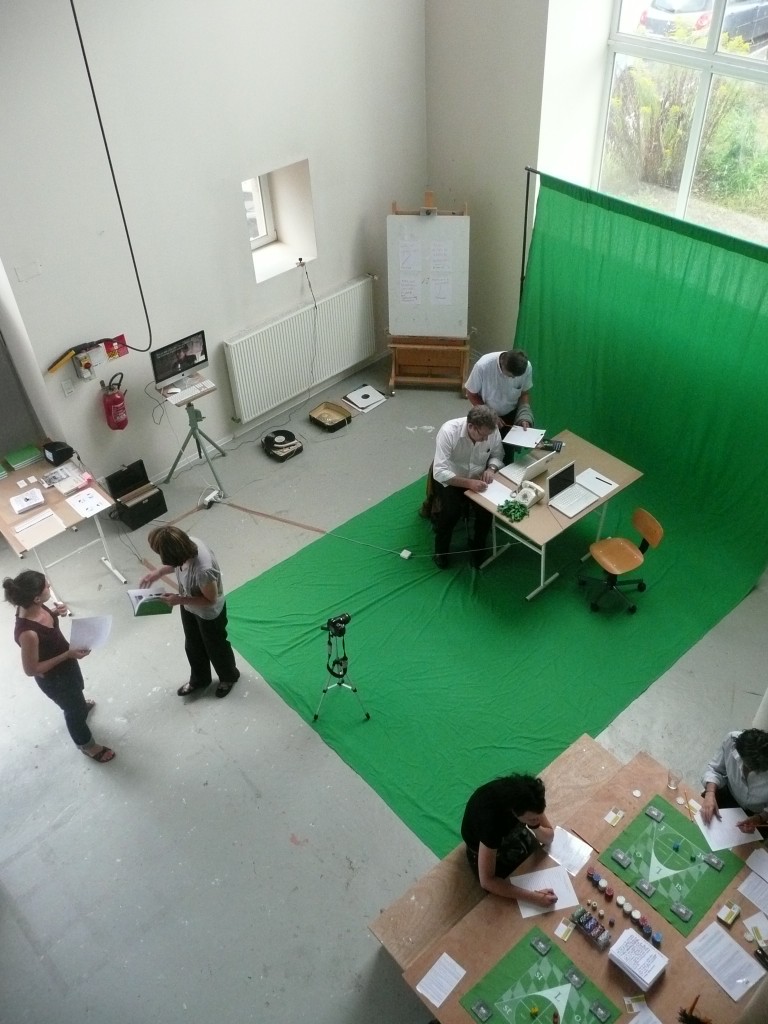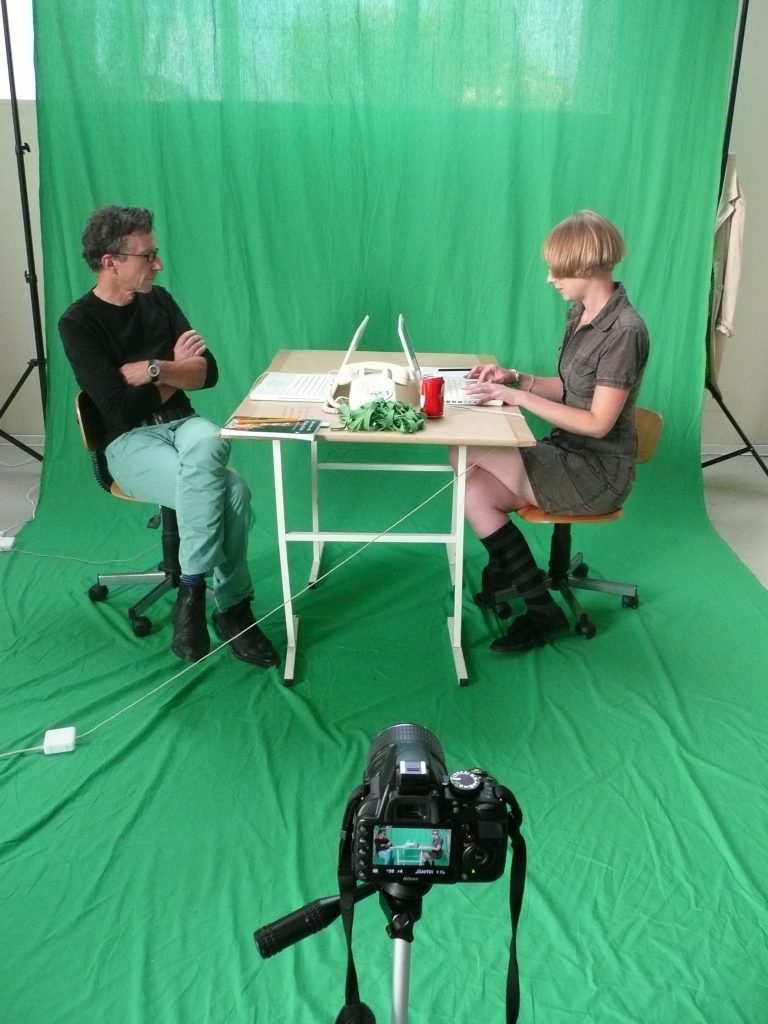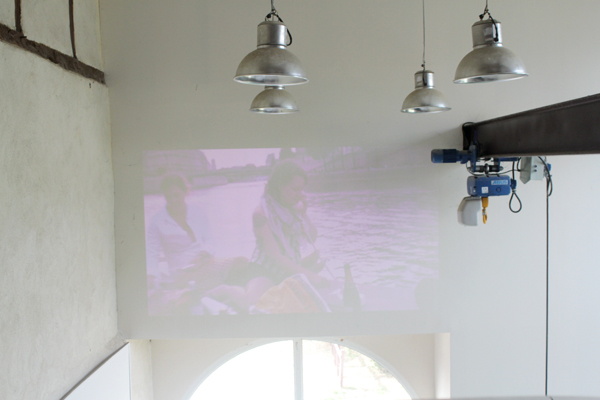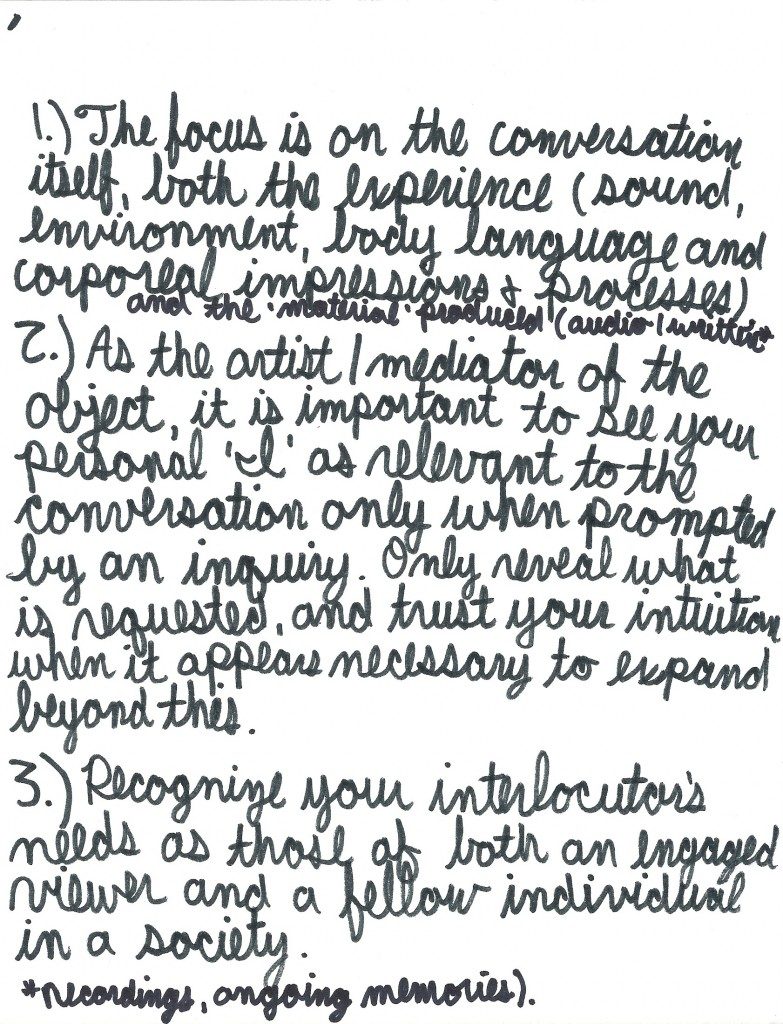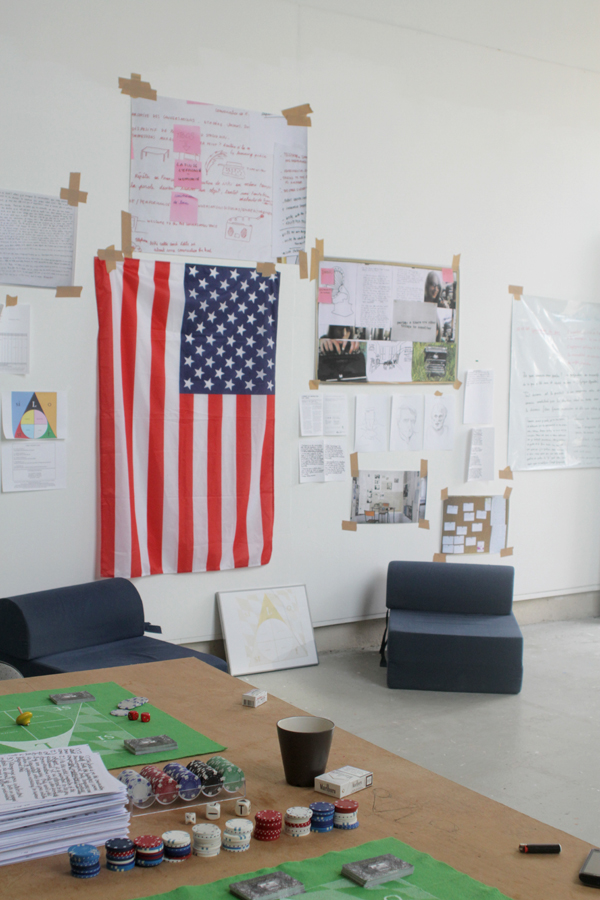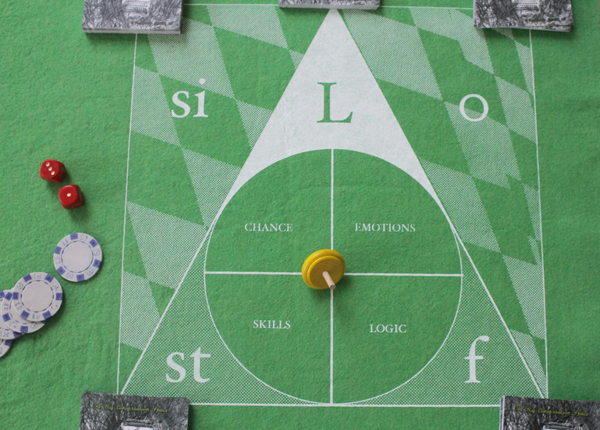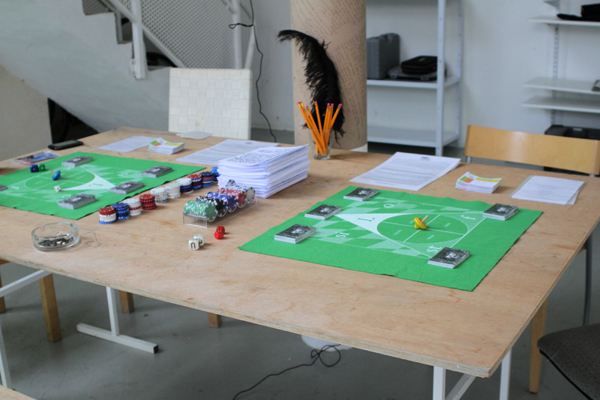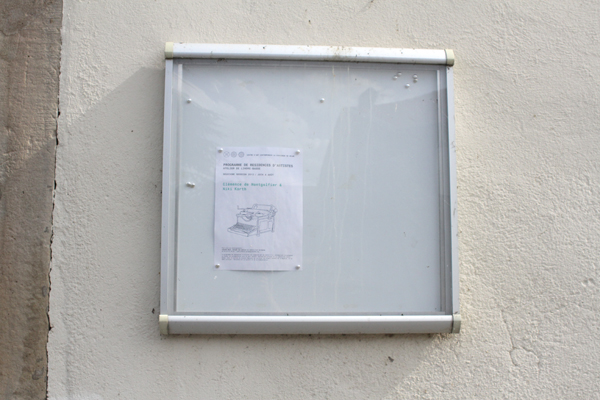The Big Conversation in Space
FR//
Projet de résidence à Lindre-Basse | Centre d’Art Contemporain de la Synagogue de Delme | juin-août 2012
Open studios 27 Août 2012
LE GRAND ESPACE DE CONVERSATION
“Depuis 2010, Clémence de Montgolfier et Niki Korth érigent la conversation en art, à travers un projet intitulé The big conversation space. Pour elles, l’art n’a pas de message à transmettre, n’a pas vocation à une quelconque efficacité. Loin de toute rentabilité, c’est une pratique fondamentalement gratuite, libre, non autoritaire, un « espace d’errance langagière ». L’œuvre d’art n’est pas le réceptacle d’un discours préétabli, que le spectateur aurait pour délicate mission de décrypter. L’artiste n’est pas investi d’une mission civilisatrice, il n’a rien à nous apprendre. Il n’est pas détenteur d’un savoir dont l’œuvre d’art constituerait le canal de transmission.
Le travail de Clémence de Montgolfier et Niki Korth consiste avant tout à mettre en place des situations de conversation avec tous ceux qui le souhaitent. Ces conversations peuvent avoir lieu dans des espaces d’exposition, sur internet, par téléphone, par courrier… Elles sont retranscrites sur leur site web, dans le cadre de publications, de journaux… Le spectateur devient partie prenante du travail, il est inclus, c’est un sujet actif du dispositif auquel il participe pleinement.
La conversation comme œuvre d’art ouvre la possibilité d’une parole et d’un type de discours résolument non autoritaires. C’est dans l’échange, dans l’espace qui se crée entre deux ou plusieurs personnes qu’une forme de savoir non hiérarchique peut se mettre en place. Les artistes proposent des sujets de conversations aussi variés que : la démocratie, le féminisme, les super héros… et tout autre thème peut leur être proposé.
Outre les conversations, les deux artistes soumettent des questionnaires dont elles compilent scrupuleusement les réponses ; elles en tirent diagrammes, camemberts et statistiques à la précision redoutable. Elles réalisent également des enquêtes sur commande. A travers les typologies de l’enquête et du questionnaire, elles appliquent ad absurdum la logique du langage administratif et bureaucratique. L’objectivité affichée de leurs outils d’analyse ne cache pourtant pas leurs limites, et le rendu des données laisse transparaître une part d’artisanat largement assumée.
Dans le cadre de leur résidence à Lindre-Basse, Clémence de Montgolfier et Niki Korth proposent de concevoir un jeu de société, d’éditer un journal avec des retranscriptions de conversations et de mettre en scène une pièce de théâtre à partir d’un scénario écrit récemment. Robot Demos raconte l’histoire d’un robot que divers personnages tentent de s’approprier : une analyste, une scientifique, une journaliste, une activiste, une capitaliste… projettent l’une après l’autre leurs désirs sur ce double machinique…”
Marie Cozette
EN//
Residency project at Lindre-Basse | Centre d’Art Contemporain de la Synagogue de Delme | June – August 2012
Open studios 27 August 2012
Text read by Marie Cozette, Director of the Contemporary Art Centre La Synagogue de Delme, on the closing reception/open studio event for the residency:
“Since 2010,Clémence de Montgolfier and Niki Korth have been raising the conversation in art through a project entitled The Big Conversation Space. For them, art has no message to convey, and is not intended to be effective. Far from being profitable, it is a fundamentally gratuitous, free, non-authoritarian practice, a space of linguistic wandering. The work of art is not the receptacle of a pre-established discourse, which the spectator would have the delicate task of deciphering. The artist is not invested with a civilizing mission, s/he has nothing to teach us. S/he does not possess a knowledge of which the work of art constitutes the channel of transmission.
The work of Clémence de Montgolfier and Niki Korth consists above all of setting up situations of conversation with all those who wish it. These conversations can take place in exhibition spaces, on the internet, by telephone, by mail … They are transcribed on their website, in the framework of publications, newspapers … The spectator becomes part of the work, It is an active subject of the device to which it fully participates.
Conversation as a work of art opens up the possibility of a resolutely non-authoritarian speech and type of discourse. It is in the exchange, in space created between two or more people, that a form of non-hierarchical knowledge can be put in place. The artists offer subjects of conversations as varied as: democracy, feminism, superheroes … and any other theme can be proposed to them.
In addition to the conversations, the two artists submit questionnaires whose scrupulous answers they compile; They draw diagrams, camemberts and statistics with a formidable precision. They also conduct custom surveys. Through the typologies of the survey and the questionnaire, they apply ad absurdum to the logic of administrative and bureaucratic language. The displayed objectivity of their analysis tools does not hide their limitations, and the rendering of the data reveals a share of craftsmanship largely assumed.
As part of their residence in Lindre-Basse, Clémence de Montgolfier and Niki Korth propose to design a board game, edit a newspaper with transcripts of conversations and stage a play based on a scenario written recently. Robot Demos tells the story of a robot that various characters try to appropriate: an analyst, a scientist, a journalist, an activist, a capitalist … all project their desires one after the other on this double machine…”
During this residency, TBCS produced The Green Book, a hybrid of non-fiction and science-fiction, composed of transcribed interviews and imaginary conversations with artists, parents, and clones, and created the first version of The Big Conversation Game, a discursive board game that aims to make friends close and enemies closer, all of which were launched at the open studio event. Additionally, visitors were invited to complete surveys, watch videos, and engage in chat experiment that utilized the shortcomings of using Google translate for instantaneous translation between French and English to foster the connections that emerge when language breaks, against the backdrop of a green screen through which they would later be transposed onto scenes of outer space. Hence, the Big Conversation in Space.
Example Conversation in Space, with Agathe Borgne of CAC Synagogue de Delme and TBCS.
Photos credit: Agathe Borgne, CAC Synagogue de Delme
